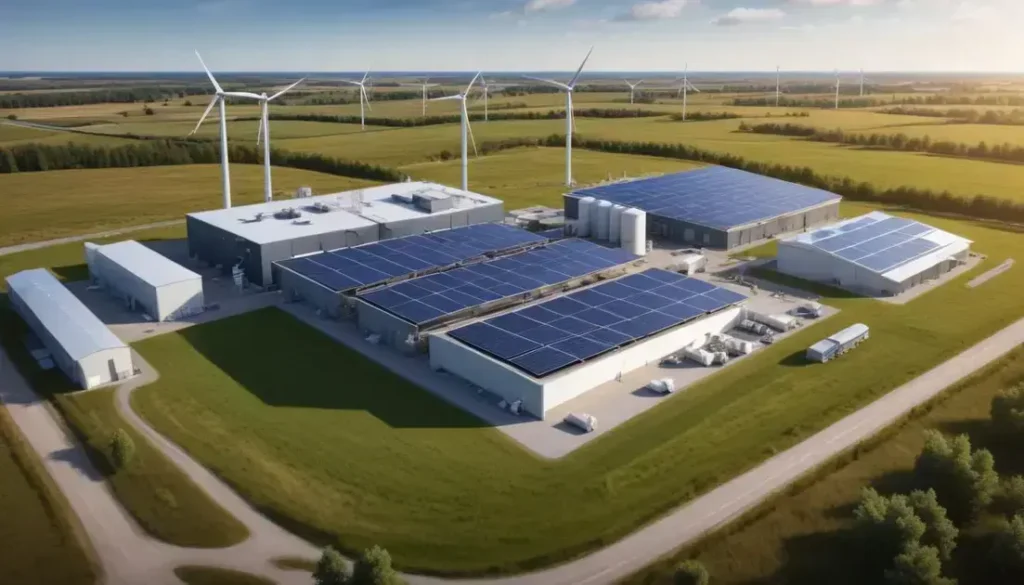Sustainable aviation fuel (SAF) significantly reduces carbon emissions in the aviation industry, offering a cleaner alternative to traditional jet fuel and fostering innovative solutions in fuel production through advanced technologies like blockchain.
The evolution of sustainable aviation fuel is reshaping the aviation industry. As companies worldwide adopt innovative solutions, Indian businesses must stay informed about crucial developments.
Expansion of Avelia’s multi-supplier model
Avelia’s expansion of its multi-supplier model is a significant leap towards enhancing the efficiency of the Sustainable Aviation Fuel (SAF) market. By integrating multiple suppliers, Avelia aims to streamline the production and distribution processes, ensuring that airlines have better access to SAF. This model not only fosters competition but also drives innovation in fuel production, leading to more sustainable options.
Through strategic partnerships, Avelia plans to source SAF from various producers, thereby diversifying its portfolio. This diversification helps mitigate risks associated with supply chain disruptions. Furthermore, it allows airlines to adapt quickly to regulatory changes and market demands concerning sustainability.
Moreover, the growth of this model aligns with the increasing global pressure on airlines to reduce their carbon footprint. As regulations on emissions tighten, having a reliable and varied supply of SAF becomes imperative. Avelia’s approach reflects a commitment to supporting Indian airlines in transitioning towards greener fuel alternatives, which is essential for meeting future environmental targets.
Impact of SAF on global aviation emissions
The Impact of Sustainable Aviation Fuel (SAF) on global aviation emissions is profound and multifaceted. As airlines increasingly turn to SAF, we witness a significant reduction in greenhouse gas emissions. Traditional aviation fuels are major contributors to carbon footprints, but SAF offers a sustainable alternative derived from biological sources.
Research indicates that using SAF can reduce lifecycle greenhouse gas emissions by up to 80% compared to conventional jet fuel. This reduction is crucial for combating climate change and aligns with international targets for emission reductions. Furthermore, each flight operated with SAF represents a step towards achieving net-zero emissions in the aviation sector.
By adopting SAF, airlines not only enhance their sustainability but also respond to growing consumer demand for environmentally responsible options. Passengers are increasingly aware of their carbon footprints and are likely to support airlines that prioritize green initiatives.
However, the widespread adoption of SAF requires collaboration between governments, fuel producers, and airlines. Investments in SAF production facilities and infrastructure are essential to ensure a steady supply. As the market evolves, the aviation industry can fully leverage the potential of SAF to mitigate its environmental impact and pave the way for a greener future.
Growth of the blockchain-driven SAF marketplace
The growth of the blockchain-driven Sustainable Aviation Fuel (SAF) marketplace represents a revolutionary shift in the aviation fuel industry. Blockchain technology enhances transparency and traceability in the supply chain, ensuring that SAF meets stringent sustainability criteria. This innovation allows stakeholders to verify the origin and production methods of the fuel, which is essential for gaining consumer trust.
As airlines increasingly adopt SAF, the demand for reliable sourcing mechanisms has skyrocketed. Blockchain facilitates real-time tracking of fuel licenses and emissions reductions, providing a comprehensive overview of a product’s environmental impact. By utilizing this technology, the aviation sector can promote accountability.
Moreover, the blockchain-driven marketplace incentivizes producers to invest in greener technologies. As suppliers showcase their sustainability practices through certifications stored on the blockchain, they can differentiate themselves in a competitive market. This not only fosters increased production of SAF but also encourages innovation within the industry.
The integration of blockchain in the SAF marketplace enhances collaboration among airlines, fuel producers, and regulatory bodies. This collaborative ecosystem promotes the growth of sustainable practices across the aviation sector. As the blockchain-driven marketplace continues to evolve, it will play a crucial role in reducing carbon emissions and fostering a greener future for aviation.
In Summary: The Future of Sustainable Aviation Fuel
The growth of Sustainable Aviation Fuel (SAF) is changing the aviation industry. With innovations like blockchain technology, the SAF marketplace is becoming more transparent and trustworthy.
As airlines adopt SAF, they play a key role in reducing carbon emissions and meeting environmental goals. The collaborative efforts among stakeholders are essential for a greener future.
Ultimately, embracing SAF not only benefits the environment but also positions airlines as leaders in sustainability. Keeping pace with these developments is crucial for Indian businesses in the aviation sector, ensuring they are prepared for the future.
Frequently Asked Questions
What is Sustainable Aviation Fuel (SAF)?
Sustainable Aviation Fuel (SAF) is a type of fuel made from renewable resources, aimed at reducing the carbon footprint of aviation.
How does blockchain technology benefit the SAF marketplace?
Blockchain technology enhances transparency and traceability of SAF, ensuring that production and sourcing meet sustainability standards.
What are the environmental benefits of using SAF?
Using SAF can significantly reduce greenhouse gas emissions by up to 80% compared to conventional jet fuel, helping airlines meet climate goals.
Why is collaboration important in the SAF market?
Collaboration among airlines, fuel producers, and regulatory bodies ensures a reliable supply chain, promotes innovation, and enhances sustainability practices.
How can Indian businesses benefit from adopting SAF?
By adopting SAF, Indian businesses can become leaders in sustainability, strengthen their market position, and appeal to eco-conscious consumers.
What are the challenges in scaling up SAF production?
Challenges include the need for investment in production facilities, regulatory support, and infrastructure to meet increasing demand for sustainable fuels.


